Centroamérica
Salvadoran woman decides to return to the country to live in an environment of peace and tranquility
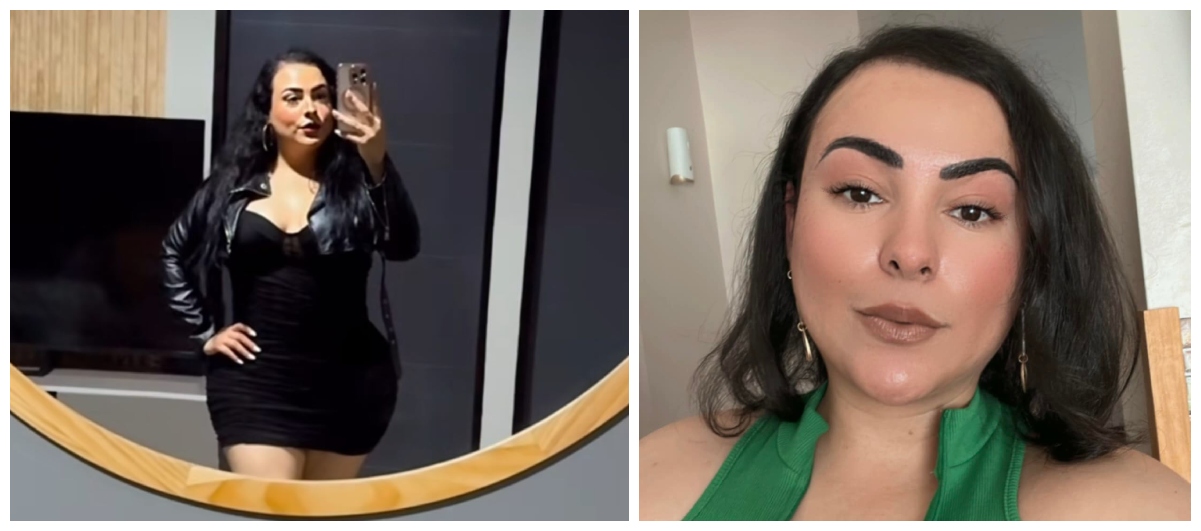
Live a quiet life, full of peace and for your mental and emotional well-being. Those are the main reasons that motivated Cinthia Gracast, creator of content of Salvadoran nationality, to return to the country after several years living in Chicago, United States.
Gracast has published on his social media platforms the step by step of his move to El Salvador, his country of birth and to which he returns after having recently visited him, at which time, he says, he made the decision to return.
The content creator points out that, during her visit to the country, she witnessed the substantial changes that El Salvador has undergone and that have made it the safest country in America. In addition, he remarked how that atmosphere of peace helped to improve his mental and emotional health, which was quite affected during his stay in Chicago.
“I love the lifestyle of El Salvador. As soon as I went, I just fell in love even more. I feel like that’s how you live and here in the United States you live only to work. It’s a routine that’s ruining you. A routine that has had me in depression, in anxiety. It is something that I have fought with alone,” she says in one of her videos, in which she announced her decision to return to the country.
Gracast commented in that publication that he recently visited the country and was able to witness how El Salvador has changed, moving from an environment full of violence to an environment of peace and security, thanks to the transformations driven by the current government of Nayib Bukele.
“When I went to El Salvador this time, I swear that I felt a peace, something changed in me. Being there I felt very good, I felt happy, I didn’t feel any anxiety. I feel that my mental health is priceless and I want to be there (in El Salvador) and I’m going to be there. I know it’s going to be a very good change,” he added in that video.
After this publication, the content creator published several videos showing her moving process. Finally, yesterday he published the video of his first day in El Salvador, showing his followers the preparation of a coffee with Salvadoran tradition, inherited from his grandmother, and highlighting the atmosphere of peace that is currently lived in the country.
El Salvador has undergone a positive change in terms of public safety in the last five years and under the presidential leadership of Nayib Bukele, going from being one of the most violent countries in the world to becoming the safest in America.
During Nayib Bukele’s five-year period, El Salvador has recorded 600 days with zero homicides and has seen the average of violent deaths per 100,000 inhabitants categorically reduced, thanks to strategies such as the Territorial Control Plan or the emergency regime still in force in El Salvador, which has allowed the capture of more than 79,000 gang members and criminals.
Centroamérica
White House rejects Maduro letter to Trump as full of lies
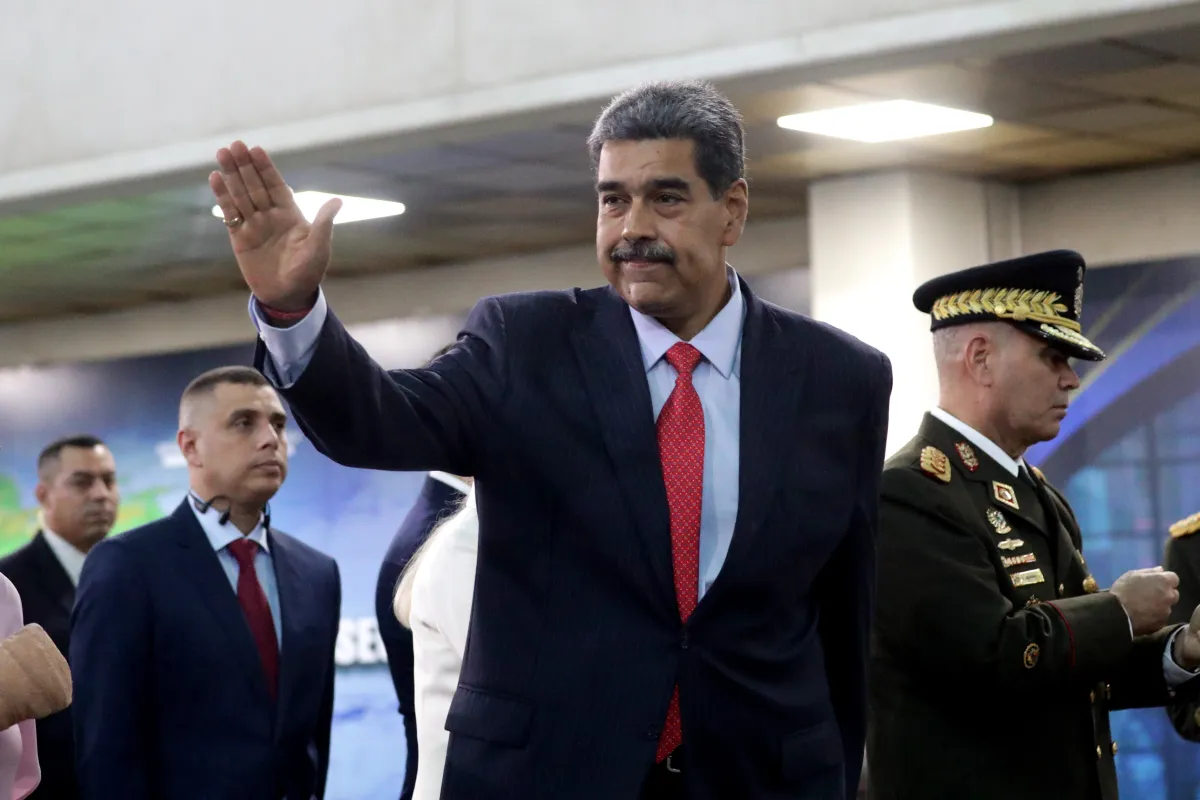
White House spokesperson Karoline Leavitt confirmed Monday that U.S. President Donald Trump received a letter from Venezuelan President Nicolás Maduro, whom she described as “illegitimate.” In the letter, Maduro expressed his willingness to engage in dialogue, but Leavitt warned that the document “contains many lies.”
“We have seen this letter. Frankly, I think Maduro repeated many lies in it, and the Administration’s stance on Venezuela has not changed,” Leavitt said during a press conference at the White House.
The spokesperson emphasized that Washington considers the Chavista regime illegitimate and underscored that “President Trump has clearly demonstrated his willingness to use all necessary means to stop the lethal drug trafficking from the Venezuelan regime to the United States.”
Meanwhile, Venezuelan Executive Vice President Delcy Rodríguez confirmed on Sunday that Maduro sent the letter to Trump and published it on Telegram.
Dated September 6, the letter expresses Maduro’s willingness to negotiate with U.S. special envoy Richard Grenell and denies any links to drug trafficking. “In recent weeks, absolutely false accusations have emerged about connections with mafias and drug trafficking gangs by the legitimate high authorities of Venezuela,” the letter reads.
Central America
UN experts label Nicaragua’s repression as crimes against humanity
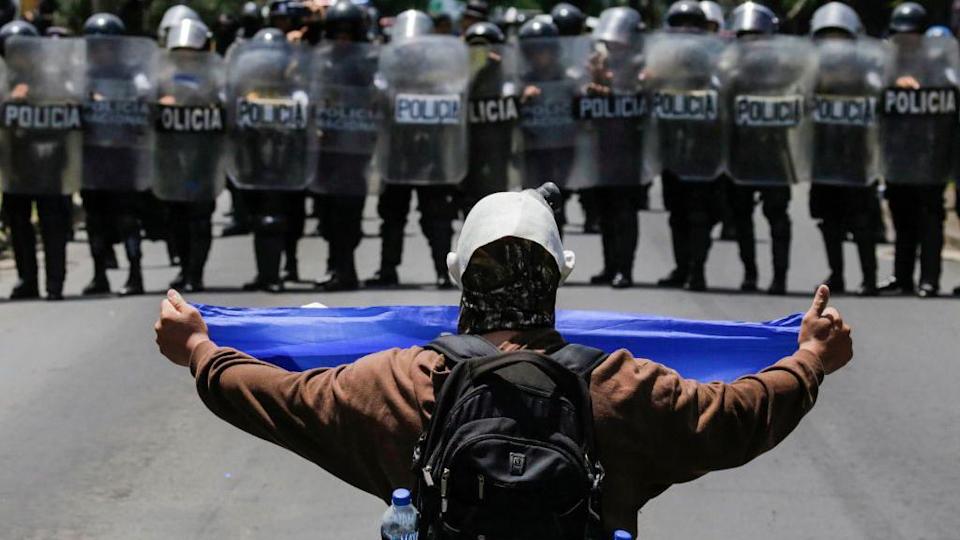
These are just some of the violations of human integrity that the United Nations’ Group of Experts on Human Rights in Nicaragua considers crimes against humanity.
The expert team determined in its latest report, presented on April 3, that the “State is persecuting its own people” with repressive actions that, under international law, would fall into the category of crimes against humanity.
“This report is a wake-up call for the international community about the situation in Nicaragua and its duty to protect its population,” Jan-Michael Simon, a lawyer and president of the group, told BBC Mundo.
The document identifies 54 individuals, including ministers, members of the security forces, and civil society actors, as responsible for the “systematic and widespread repression” carried out by the regime of Daniel Ortega and Rosario Murillo.
Although this is not the first time the technical team created in 2022 has denounced the events that began with the 2018 protests in Nicaragua, the report now names the alleged perpetrators, whose guilt will have to be determined by international justice bodies such as the International Court of Justice in The Hague.
As a result of the report, the “co-presidents” Daniel Ortega and Rosario Murillo decided to withdraw their country from the United Nations Human Rights Council.
“Nicaragua conveys its sovereign and irrevocable decision to withdraw from the Human Rights Council and from all activities related to this council and all its satellite mechanisms,” Murillo announced.
Centroamérica
Guatemalan journalist José Rubén Zamora returns to prison after court revokes release
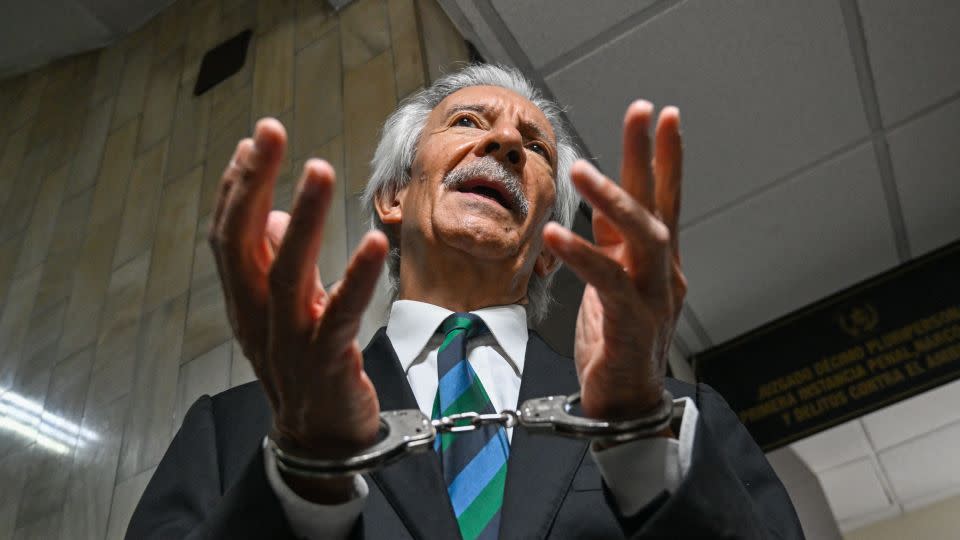
Businessman and journalist José Rubén Zamora was sent back to prison on Monday after the Second Multipersonal Criminal Court complied with an order from the Third Court of Appeals, which suspended his conditional release. The ruling followed a motion filed by the Public Ministry, arguing that Zamora posed a flight risk.
“I must comply with and enforce the order,” Judge Erick García stated during the hearing that revoked Zamora’s substitute measures, which had been in place since October last year.
Following the court’s decision, the founder of El Periódico was transferred back to prison, where he had already been incarcerated from July 2022 to October 2024.
Zamora’s defense team unsuccessfully requested the suspension of the hearing, citing two pending appeals aimed at overturning the Court of Appeals’ decision.
-

 Central America4 days ago
Central America4 days agoPanama seizes over three tons of drugs hidden in Caribbean port container
-

 International3 days ago
International3 days agoPolice investigate deaths of Rob Reiner and wife as apparent homicide
-

 Central America3 days ago
Central America3 days agoOAS urges swift recount in Honduras as election results remain uncertain
-

 International5 days ago
International5 days agoSeveral people shot in attack on Brown University campus
-
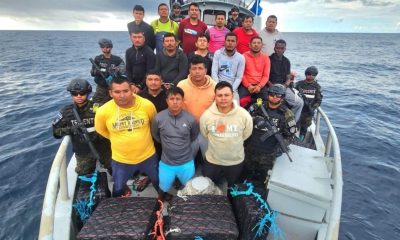
 Central America2 days ago
Central America2 days agoEl Salvador ranks among top countries in the Americas in fight against organized crime
-

 Central America2 days ago
Central America2 days agoBukele says AI partnership with xAI will transform public education in El Salvador
-

 International5 days ago
International5 days agoU.S. and Mexico Reach Deal to Address Water Deficit Under 1944 Treaty
-

 International22 hours ago
International22 hours agoRubio rules out 2028 presidential bid if Vance runs
-
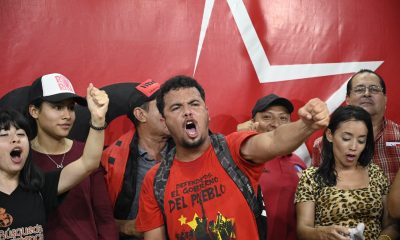
 Central America22 hours ago
Central America22 hours agoArrests and clashes in Tegucigalpa as vote count continues after Honduras election
-
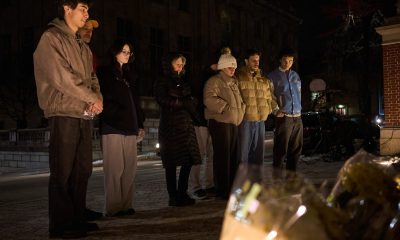
 International22 hours ago
International22 hours agoAuthorities search for armed and dangerous suspect in fatal Brown University attack


























